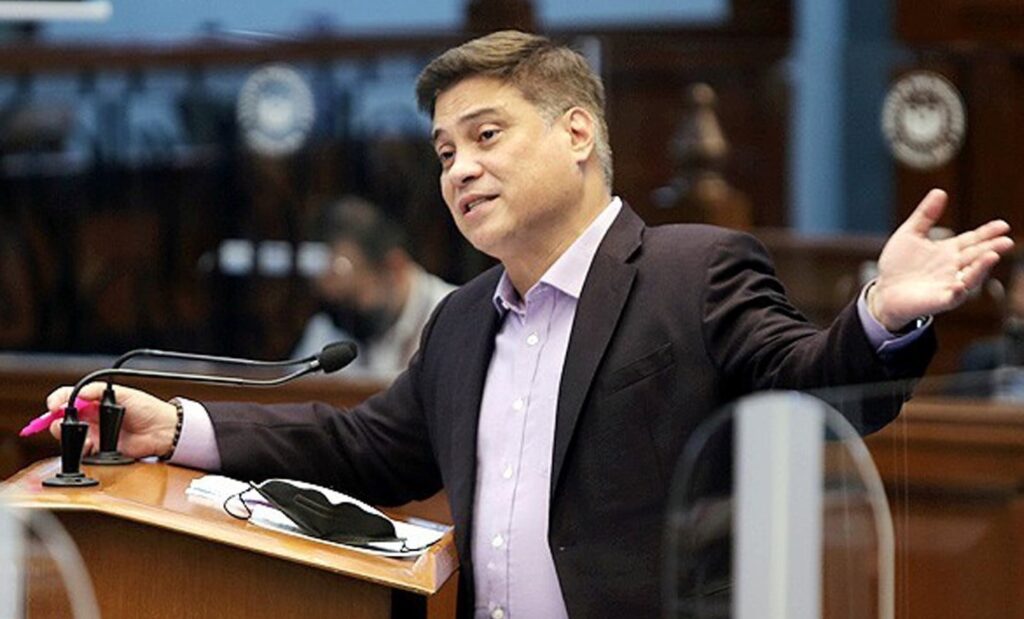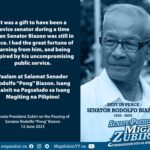Zubiri lauds PH rise in renewable energy investments: “We’re on the right track”
Senator Juan Miguel Zubiri has lauded the Philippines’ rise to the second spot in BloombergNEF Climatescope’s 2024 rankings for the most attractive emerging markets for renewable energy investment, a glaring proof of the nation’s growing commitment to renewable energy.
“This is a fantastic development built on our whole-of-government approach towards increased usage of renewable energy, led by the Department of Energy,” Zubiri expressed, emphasizing the collaborative efforts driving the success.
The achievement, which places the country ahead of China and second only to India, is BloombergNEF’s acknowledgment of the Philippines’ robust regulatory framework supporting renewable energy.
Need a place to stay? Book Your Hotel in Bukidnon and anywhere in the world
Need transportation? Book your bus, flight, ferry/boat, train here
YOU CAN ALSO BOOK BY CLICKING BELOW:
Klook.comThe country has implemented all nine power policies evaluated in the rankings, including renewable energy targets, feed-in tariffs, import tax incentives, priority grid access, renewable energy certificates, renewable energy auctions, net metering, value-added tax (VAT) incentives, and renewable mandates.

Zubiri, who chairs the Senate Committee on Economic Affairs, is the principal author of the Renewable Energy Act of 2008, which set the foundation for the country’s renewable energy journey.
“We have come a long way since we pushed for the Renewable Energy Act, and I am very excited to see it finally bearing fruit and bringing us to the forefront of the global renewable energy sector,” the former Senate President said.
The senator praised the Department of Energy (DOE) for its commitment to increasing the share of renewables in the national energy mix, aiming to grow it from 22 percent to 35 percent by 2030.
“I want to congratulate the DOE for their efforts to increase the percentage of renewable energy in our energy mix. No doubt, this has made way for more investors to put their money behind renewable energy,” he explained.
The growth of renewable energy investments also promises significant benefits for consumers.
“With more renewable energy investors coming in, particularly foreign investors, we can look forward to a more competitive renewable energy sector that can offer more affordable services for our people,” Zubiri said.
The Bukidnon senator also said the Public Service Act, which allows up to 100 percent foreign ownership in the energy sector, is expected to boost foreign investments, making the renewable energy market even more competitive.
Zubiri highlighted the economic and environmental benefits of renewable energy development.
“We are on a good path now, and I hope we can continue pushing for an even stronger renewable energy sector in the country. It’s better for the environment and people’s pockets,” he said.
This milestone in renewable energy also positions the Philippines as a leader in the global push for sustainability.
Zubiri emphasized that by attracting more investments, the country does not only address climate change but also creates economic growth and ensures energy security.
Direct foreign investments in renewable energy have surged, bolstered by policies aimed at incentivizing sustainable practices and supporting the transition from fossil fuels. These measures align with global trends and reinforce the Philippines’ role as a model for emerging markets in renewable energy.
With policies firmly in place and investor confidence at an all-time high, Zubiri believes the Philippines can maintain its upward trajectory in the sector.
“We are seeing the tangible results of years of hard work and vision. This is a win for both the environment and millions of Filipinos who will benefit from a sustainable, affordable energy future,” Zubiri said.






